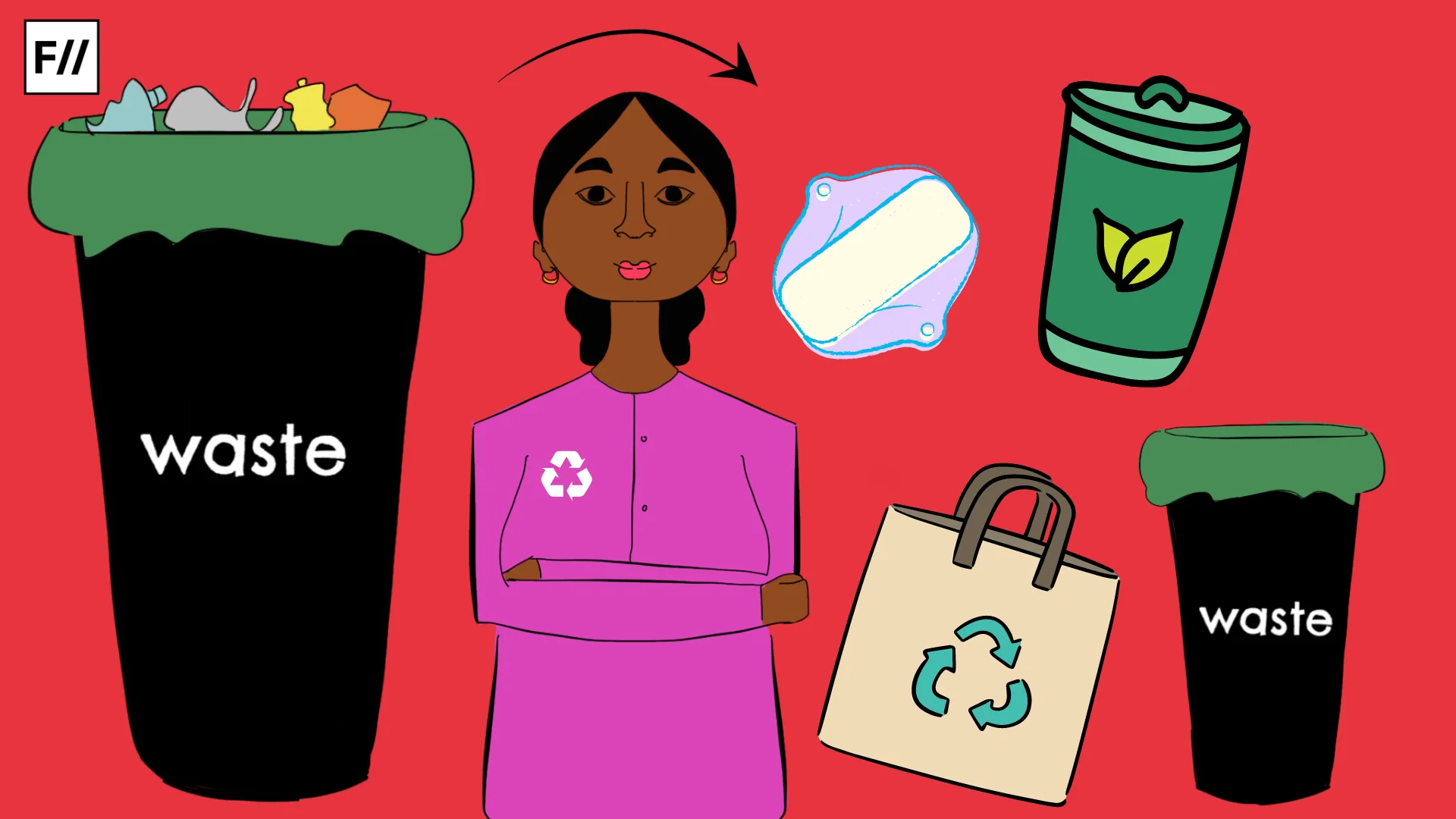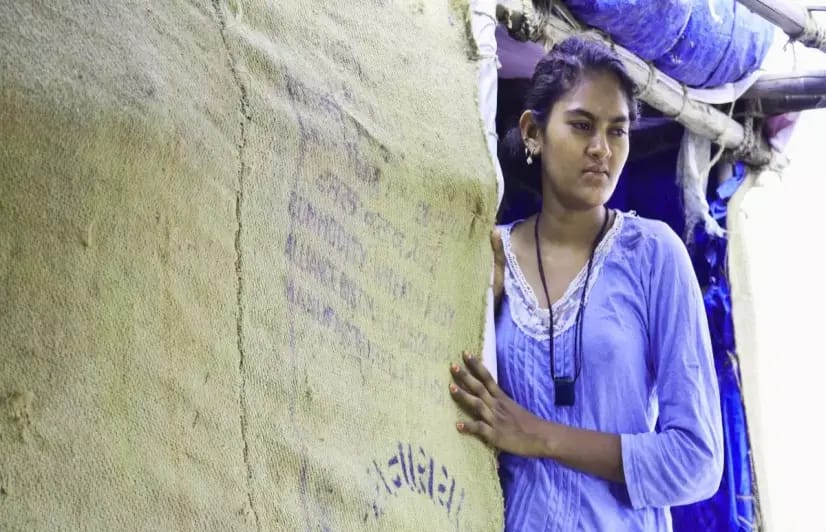Posted by Akshaya Kumar
It’s that day of the week again, in school. The day when mothers proudly showcase their washing skills through their kids’ lily-white sports uniforms. But for some adolescent girls, it’s the most dreaded day of the week. Period days and white sports uniform are a lethal combination to these girls who must endure a whole school day fearing the humiliation of period stain in their perfectly white uniforms.
There, I said it. The forbidden ‘P’ word and the ‘S’ word that exist everywhere around us, but almost never mentioned in anything but hurried whispers. During these days, one can witness the girl species moving around the school in packs, trying to protect each other. Every girl has a guardian angel to look out for the ‘calamity’ any time she stands up. But such protection and guardianship are carefully kept out of earshot of the boys and male staff of the school. Like one day a week is not bad enough, some schools even have everyday white uniforms!! These schools pose a pressing need to call out the difficulties faced by kids, only then would they even consider changing the uniforms, thereby freeing the kids from having to go through these anxieties once a month.
For most girls adolescence can be described as stepping into a world of secrets that’s been protected and preserved by other women for generations. It’s like having to join some kind of a secret cult that comes with predefined rules they inevitably need to uphold.
The purpose of these lies is to refrain from drawing attention to oneself, to steer clear of the awkward expression one is met with when the word ‘period’ is uttered.
I decided to write about the ‘P’ word after a casual conversation with a friend of mine. He said his date cancelled on him because she had her period and she stained her clothes. He said it felt weird because nobody has ever said that to him. Upon rumination, I realized that I should not be surprised by this at all. Being a close friend, I have never discussed my period with him. Sometimes because I thought there was no necessity for it, other times blatantly trying to hide the pain and the stain. If it had been part of a casual conversation among friends, he wouldn’t have felt weird. I found myself at awe – this girl had mentioned periods as the reason to cancel her date, like it was no big deal! I wouldn’t have done it. But I realized that it’s okay to do so, simply because it’s true. It is a perfectly valid reason to not do something or be somewhere.
At this very moment, there are countless lies floating around in the air, uttered to cover up anything related to menstruation. Period cramps get replaced with viral fever for sick leaves, suddenly women claim to like dark coloured clothes for work for three days a month, extreme heat gets blamed to cover up cravings for ice cream, suddenly some close relative gets sick or in some cases killed mercilessly to dodge a long trip. All these lies go unnoticed because that’s the very intention of these perfectly well-crafted fibs, almost as if people stay up all night brainstorming practical excuses that blend with the everyday events. The purpose of these lies is to refrain from drawing attention to oneself, to steer clear of the awkward expression one is met with when the word ‘period’ is uttered.
Every woman goes through menstruation for nearly 40 years in her life, shedding approximately 30-50 ml of blood in every cycle. It is one of the naturally occurring processes of the human body, just like breathing, sleeping, or having sex (oops! Yet another ‘S’ word). So why are we not able to talk freely about this natural process?
Also read: Bodyform Ad: Periods Are Normal, Showing Them Should Be Too!
Discomfort about menstruation is widely prevalent among both the urban and the rural population, greatly aided by the advertisements on menstrual pads and other menstrual products. For a long time, these products were referred to as ‘sanitary’ or ‘feminine’ products, concealing any reference to period, blood or menstruation. The word ‘period’ was first uttered in a tv commercial only in the late 80s but to balance out the atrocity of uttering the word, till date a supposedly calming blue liquid is poured on sanitary napkins to market the absorption rate of menstrual pads.
Finally, in 2017, Bodyform decided to show red liquid instead of blue while advertising it’s menstrual pads with its #bloodnormal campaign. This tiny change is a significant step in recognizing the existence of menstruation and the process of bleeding. In the midst of such progressive strides, unfortunately, most of the menstrual hygiene ads still refer to periods as ‘that time of the month’.
The repercussions of not acknowledging the existence of menstruation and lying to cover it up are adverse. Inadequate public restrooms and improper napkin disposal methods in women’s restrooms are some of the detrimental impacts of this. Even if there are proper restrooms, women still brainstorm creative ways to sneak sanitary napkins into the restrooms at their school or workplace. Some are embarrassed to even venture into this and end up not changing napkins outside of their home at all, thus becoming more prone to health problems like infections.
In a refreshing move, two Mumbai based startups, Culture Machine and Gozoop announced ‘First day Of the Month’ leaves (FOP) for their female employees in 2017. More recently, FlyMyBiz, a Kolkata based company, has followed suit. Although there have been mixed responses to this move, this undoubtedly brings us a step closer towards an inclusive work environment that is otherwise designed for men. It is also time to look beyond companies to provide such leaves for their employees. Countries like Japan and South Korea have nationwide laws for menstrual leaves. Considering the humongous size of the female workforce in India, this is an imminent issue that needs a law around it to standardize it across all working sectors.
Given that menstruation happens every month to all women, shouldn’t we be able to talk about this without feeling embarrassed? Today, talking about periods is bound to get weird responses from some men (some women as well). But if we keep talking about it frequently, eventually will it become a part of any casual conversation? Can women finally stop making excuses and lying for something that is out of their hands? Maybe.
Can women finally stop making excuses and lying for something that is out of their hands? Maybe.
There are two aspects to this. Talking about periods is as weird as hearing about it. Women should be willing and comfortable to talk about it casually, like how they talk about the weather or sports or shopping. Men should treat it as something natural and not be repulsed by it. But how do we normalize the existence of periods as a significant part of every woman’s life?
School curriculum has a major role to play in this. It is time to stop skipping the chapter on menstruation from biology textbooks or to give it as a home reading piece. When kids study about menstruation as a biological process it makes them understand the importance of it. A teenage girl will grow up not feeling ashamed to talk about it and not feeling the need to lie about it. A teenage boy will grow up to be empathetic and supportive of this natural phenomenon and not use ‘PMS’ing in the context of a joke (We all have heard at least a few of these jokes, haven’t we?)
Also read: Period Piece Official: Menstruation Through The Ages
Every woman wishes for a strengthening potion to bear period cramps and a vanishing spell to make period stains disappear. Until that happens, women have enough to deal with already without having to drain their brain trying to think of excuses and lies because the world around them is too mushy to deal with words like ‘periods’ and ‘menstrual blood’.
Akshaya Kumar is a 25-year-old techie striving to shatter all forms of patriarchy around her. A proud Madrasi and a glass half full kinda girl, she finds happiness in little things.
Featured Image Source: Mashable India
About the author(s)
Guest Writers are writers who occasionally write on FII.




